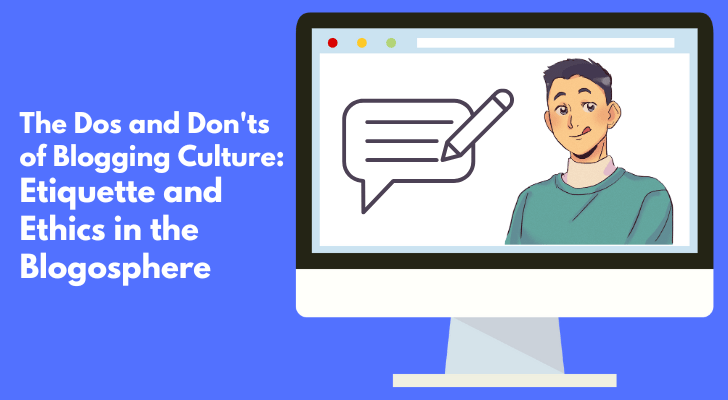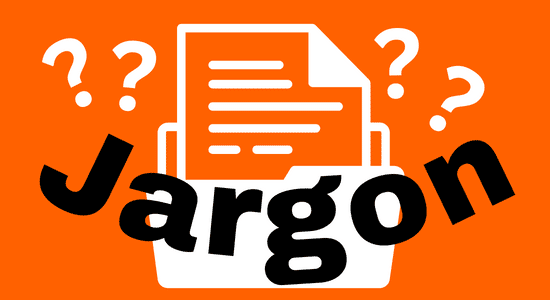As a blogger, you have the power to express your thoughts and ideas to millions of people around the globe. But with great power comes great responsibility. There are the dos and don'ts of blogging ethics to establish yourself as a respected voice in the blogosphere. So here, I've got some tips that will help you become a pro blogger.

Did You Know?
- Content Authenticity: 84% of readers believe that authenticity is a key factor when deciding what blogs they regularly follow.
- Disclosure Rates: Only about 65% of bloggers consistently disclose partnerships or sponsorships, impacting reader trust.
- Impact of Negative Comments: 52% of bloggers have experienced a significant drop in engagement after handling negative comments poorly.
- Respect for Copyright: Around 30% of bloggers have had their content used without permission, highlighting issues with copyright respect.
- Use of Personal Data: 70% of readers are concerned about how bloggers use their personal data collected through newsletters and comments.
What Is Blogging Culture?
Blogging culture is a vibrant and constantly evolving community of bloggers who share their thoughts, ideas, and experiences with the world through online platforms. It's a place where people from all walks of life have meaningful discussions and enjoy sharing valuable insights.
We all like to create content that resonates with people on a personal level. Recognition-seekers can get likes or comments on social media and that may be enough, but blogs are a little deeper than that. Competition for attention becomes steeper than ever before. It takes hard work and dedication to establish yourself as a credible voice in this crowded space. It's a culture where creativity and connection should be made in a little deeper level.
The Dos And Don'ts Of Blogging Culture
So blogging has been allowing us to share our ideas with the world for a few decades now. But like any other form of expression, there are certain dos and don'ts we should be aware of if we want to maintain credibility and build a loyal following.
DO: Be authentic in your writing.
Being authentic in your writing means being true to yourself, expressing your genuine thoughts and feelings, and sharing your unique perspective with your audience. Here are some tips on how to achieve authenticity in your writing:
- Write from your own experience: Share your own stories, experiences, and perspectives. Draw from your personal experiences, thoughts, and feelings to create content that reflects your authentic self.
- Write with honesty and transparency: Be honest about your thoughts. Don't try to sugarcoat or hide your true emotions, but instead, embrace them and use them to create genuine connections with your audience.
- Write in your own voice: Write in a way that feels natural to you. Don't try to imitate someone else's style or tone. Your unique voice is what sets you apart and makes your writing authentic.
- Write with intention: Know your purpose for writing and stay true to it. Write about what you are passionate about and what matters to you. This will help you stay authentic.
- Edit with care: Review and revise your work, but be careful not to edit out your own unique voice or perspective.
Share your genuine thoughts, and you can create content that resonates with your readers and builds meaningful relationships.
DON'T: Plagiarize or steal content from other bloggers.

Plagiarism is a serious offense and can have significant consequences, including damaging your reputation and legal action. Always give credit where it is due and to avoid using someone else's work without permission or proper attribution.
Instead, strive to create original content that is unique and valuable to your readers. If you do reference or quote someone else's work, make sure to give them credit and provide a source for your readers to reference. Not only is this the ethical and legal thing to do, but it also helps to establish your credibility as a writer and builds trust with your audience.
Did You Know?
- Plagiarism Incidence: Plagiarism affects 29% of bloggers, with many having content copied without credit at least once.
- Accuracy in Reporting: Only 40% of readers trust the factual accuracy of reporting found in blogs.
- Linking Etiquette: 45% of bloggers do not consistently link back to original sources, reducing content credibility.
- Comment Moderation: Effective comment moderation increases reader retention by 22%.
- Engagement Ethics: 58% of readers feel that manipulation of engagement stats (like purchasing followers or likes) is a significant ethical breach.
DO: Use proper grammar and spelling.
Use proper grammar and spelling for effective communication. It helps to ensure that your message is clear and easily understood by your readers. Here are some tips for using proper grammar and spelling in your writing:
- Use a spell checker: Use a spell checker to catch any spelling errors before publishing or submitting your work. This is a simple and easy way to ensure that your writing is error-free.
- Proofread your work: After using a spell checker, take the time to proofread your work for any grammar errors. This includes checking for subject-verb agreement, proper punctuation, and correct word usage.
- Use correct punctuation: Proper punctuation is critical for conveying meaning in your writing. Use commas, periods, colons, and semicolons correctly to create clear and concise sentences.
- Avoid common grammar mistakes: Common grammar mistakes include using the wrong form of a word (such as "their" vs. "there"), misusing apostrophes, and confusing homophones (such as "your" and "you're").
- Get a second opinion: Have someone else read your work before publishing or submitting it. This can help catch any errors you may have missed and ensure that your writing is polished and professional.
Proper grammar and spelling are a sign of professionalism and shows that you take your writing seriously. By taking the time to ensure that your writing is error-free, you can create content that is engaging, informative, and easy to read.
DON'T: Overuse jargon or industry-specific terms without explaining them first.

Using jargon or industry-specific terms can be beneficial in some cases, but not everyone may be familiar with the terminology. Overusing jargon can lead to confusion and can make your writing less accessible to a wider audience. Here are some tips for using jargon effectively:
- Define key terms: If you use jargon or industry-specific terms, define them in a way that is easy for readers to understand. This can include providing a brief explanation or linking to a resource that provides more information.
- Use jargon sparingly: Use jargon or industry-specific terms only when necessary. Avoid overusing them, as this can make your writing more difficult to understand and may alienate some readers.
- Consider your audience: Think about who your audience is and what their level of familiarity with the subject matter may be. If you're writing for a general audience, avoid using too much jargon and focus on explaining concepts in simple terms.
- Use analogies or metaphors: Analogies or metaphors can be an effective way to explain complex concepts or industry-specific terms in a way that is easy for readers to understand.
- Test your writing: Before publishing or submitting your work, ask someone who is not familiar with the subject matter to read it. This can help you identify areas where you may need to explain terms more clearly.
The goal of writing is to communicate effectively with your audience. By avoiding the overuse of jargon and explaining terms in a way that is easy for readers to understand, you can create content that is accessible and engaging for a wider audience.
What Do You Advocate?
DO: Engage with your readers by responding to comments and creating interactive content such as polls or quizzes.
Here’s how you can make a good connection with your readers:
- Respond to comments: Responding to comments is a great way to show your readers that you value their input and appreciate their engagement. Take the time to respond to comments, answer questions, and thank your readers for their feedback.
- Create interactive content: Creating interactive content such as polls, quizzes, or surveys is a great way to engage your readers and encourage them to participate. This type of content can also provide valuable insights into your readers' interests and preferences.
- Ask for feedback: Ask your readers for feedback on your content or ideas for future topics. This can help you tailor your content to your audience's interests and needs.
- Use social media: Use social media to engage with your readers and share your content. Respond to comments, share relevant content, and participate in online conversations.
- Be authentic: Authenticity is key to building a relationship with your readers. Be genuine, honest, and transparent in your writing and interactions with your readers.
It's not just about building a following but also about creating a community around your content. By responding to comments, creating interactive content, and fostering a sense of community, you can create a loyal following of readers who are invested in your content and eager to engage with you.
Did You Know?
- Inclusivity: Blogs that promote inclusivity see a 33% higher engagement compared to those that do not.
- Accessibility: Only 15% of blogs are fully accessible to readers with disabilities, suggesting a gap in ethical blogging practices.
- Response to Feedback: Blogs that actively respond to reader feedback tend to see a 30% increase in return visits.
- Quality Over Quantity: 78% of readers prefer quality content over frequent posting.
- Confidentiality in Interviews: 60% of interviewees trust bloggers who guarantee confidentiality without a written agreement.
DON'T: Use offensive language or engage in hate speech. Keep an open mind and respect different perspectives even if you don't agree with them.
Using offensive language or engaging in hate speech is never acceptable in any form of communication, including blogging. Keep an open mind and respect different perspectives, even if you don't agree with them. Here are some tips for promoting respectful communication in your blog:
- Use inclusive language: Use language that is inclusive and avoids stereotypes or offensive terms. This includes avoiding language that is discriminatory based on race, gender, sexual orientation, religion, or any other characteristic.
- Avoid personal attacks: Avoid making personal attacks or using language that is intended to demean or insult others. Stick to discussing the issues and avoid attacking others.
- Respect different perspectives: Not everyone shares the same opinions or perspectives. Respectful communication involves acknowledging and respecting different perspectives, even if you don't agree with them.
- Be mindful of cultural differences: Avoid language that may be offensive or disrespectful to certain groups of people.
- Set a positive tone: Set a positive tone in your blog by promoting respectful communication and avoiding negative language or attitudes.
Promoting respectful communication in your blog is not only the right thing to do but can also help you build a more engaged and loyal readership. Try using a positive and respectful tone in your writing, so you can create a welcoming and inclusive environment for all readers.
Blogging Etiquette
Blogging etiquette means you interact with your readers, fellow bloggers, and other stakeholders in a respectful and professional manner, for example;
- Being responsive to comments. A blog post attracts different types of comments from readers, ranging from praise to criticism. Respond politely to each comment regardless of its tone while avoiding defensive or aggressive responses.
- Acknowledging the source material when curating content for your blog posts. Always give credit where it's due by linking back to the original source whenever you are quoting or using someone else's work.
- Maintain high standards of professionalism when interacting with brands, sponsors, or advertisers. Ensure transparency by disclosing any sponsored content and maintaining clear communication throughout the engagement.
Blogging Ethics

Blogging ethics refers to the moral principles that guide bloggers in creating and sharing their content.
- Transparency. Bloggers should always be honest about their affiliations or relationships with brands they mention in their posts. This includes disclosing any sponsored content or paid promotions.
- Respect intellectual property rights. Bloggers must ensure that all the images, videos, and other media files used on their blogs are either original or appropriately licensed for use.
- Avoid spreading false information and ensure that all facts presented are accurate and backed up by credible sources.
- Respect privacy laws by obtaining consent before publishing anyone's personal data on their blog.
The Dos and Don'ts of Blogging Culture: Etiquette and Ethics in the Blogosphere - Conclusion
Now you know that all bloggers need to be responsible for their words and actions. You have an opportunity to express your thoughts freely. But you know that this freedom comes responsibility.
Always aim to produce quality content that provides value to your readers. Be respectful when communicating with others within your niche or community. And above all else, maintain your integrity through ethical practices such as citing sources correctly or disclosing sponsored content.
We can, and we should all create a positive environment online where communication thrives and everyone feels welcome to participate in discussions without fear of being judged or ridiculed. So go ahead - share your voice! Just be mindful of others while doing so.
This hidden knowledge used by the elites will let you generate wealth and prosperity

